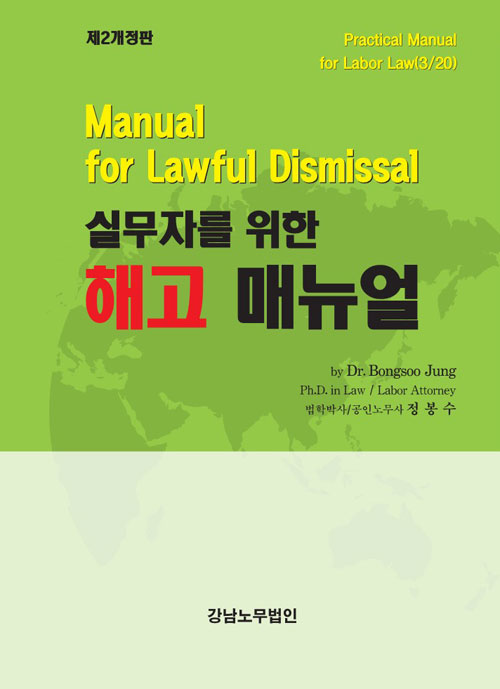| |
|
|
|
|
This manual on dismissal explains what employers need to know about dismissals in advance, and also helps the employee avoid becoming a target for discipline by understanding a company's disciplinary rights, while at the same time having the right to take remedy action under the Labor Standards Act (LSA) if unfairly dismissed. It is intended to provide a guide to which both parties can refer.
The dismissal system is necessary for both workers and employers. From the perspective of the employer, company competitiveness can be maintained by disposing the necessary personnel in the right places and dismissing redundant or bad employees. On the other hand, unfair dismissals impact more than the worker dismissed, having a great influence on that worker’s family. For this reason, the LSA strictly regulates dismissal, and if the employer fails to follow the procedural requirements, the dismissal becomes illegal and null and void. The employer may dismiss an employee if there is a legitimate cause attributable to the employee, but the employer should take a careful approach because legitimate reasons do not reside primarily in employment rules or labor contracts but the criteria for legitimate dismissal under the LSA. Employees will also be able to better protect their own rights by understanding the possible responses to unfair treatment from an employer, while developing as talented individuals skilled in their own abilities through their work.
Therefore, this "Manual on Dismissal " is an essential guide for both employers and workers. It is my particular hope that foreign executives will use this to better understand the accepted system for dismissal in Korea, thereby maintaining stable labor relations. Finally, I would like to thank those who assisted in the process of completing this book.
|
|
|



